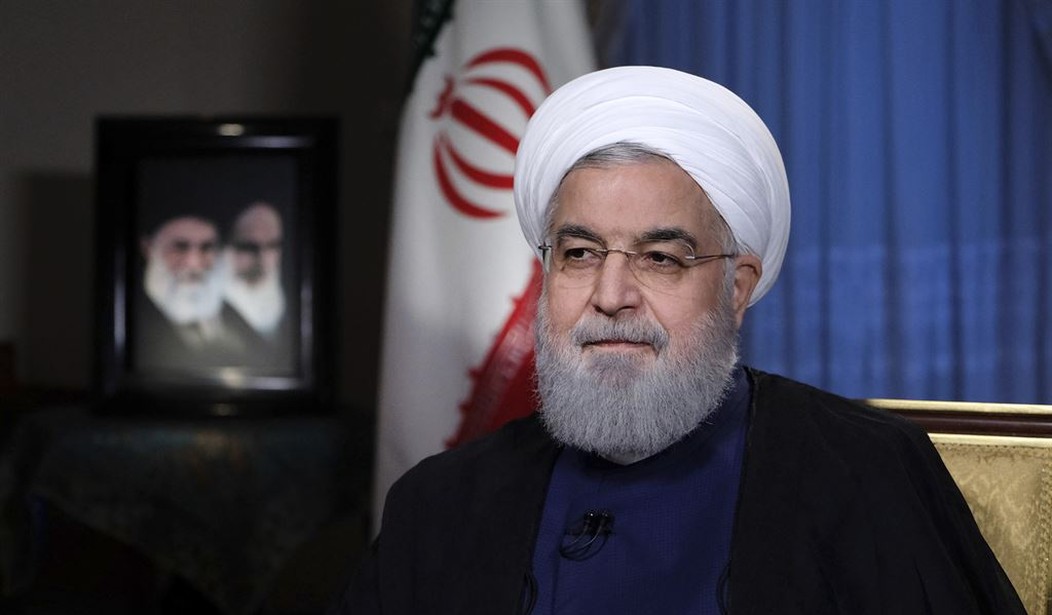Recently, I joined with 80 other current and former Iranian athletes and sports figures in signing a letter that urges an international commitment to saving the life of an Iranian national champion in wrestling, Navid Afkari. The 27-year-old is the youngest of three brothers who were arrested in 2018 for taking part in anti-government protests that summer in the city of Kazerun. While the two elder brothers have been handed prison sentences totaling more than 81 years, Navid Afkari was apparently made a scapegoat on the basis of his celebrity, and was given two death sentences along with a sentence of six and a half years in prison, and 74 lashes.
The Islamic Republic has a long history of treating prominent figures especially harshly when they express dissenting views, and Iranian athletes have an equally long history of speaking out publicly when their conscience is bothered by the regime’s behaviors. Many have paid for this dissent with their lives, including some whom I knew personally.
In 1984, the regime executed the former captain of the Iranian national soccer team, Habib Khabiri. He had been arrested the previous year after it was revealed that he had joined Iran’s leading pro-democracy opposition group, the People’s Mojahedin Organization of Iran (PMOI/MEK). Khabiri had been a close friend of mine. We played in the same club for years and in the national games that led to Iran’s first appearance in the World cup in 1978. I’ll never forget his beautiful goal against Kuwait in the last qualifying game. The day that I received the news of his execution after facing severe torture has been one of my saddest days. Navid Afkari, too, has been subject to harsh and inhumane torture.
Afkari’s plight is close to my heart, but make no mistake, his case is not unique. Indeed, as Maryam Rajavi, the President-elect of the National Council of Resistance of Iran emphasized in a statement “the cry of the Afkari brothers is the cry of thousands upon thousands of political prisoners who were either martyred under torture or executed.” These include the 30,000 individuals who were massacred in 1988 as part of the regime’s effort to definitively stamp out the organized, democratic opposition.
Recommended
Of course, that effort failed, as evidenced by the protest that landed the Afkari brothers in prison. That demonstration in Kazerun was only one of many that comprised a movement Mrs. Rajavi called a “year full of uprisings.” This in turn spanned much of the gap between two nationwide uprisings against the theocratic dictatorship, one in January 2018 and the other in November 2019. This overall trend in activism has put the regime under extraordinary pressure, leading it to lash out with some of the worst domestic repression since the time of the 1988 massacre.
At times like these, public figures like Navid Afkari can become especially powerful symbols of popular dissent. When international attention becomes focused on threats to these individuals, it can also raise awareness about other victims of the same crackdown. Our letter urges international athletic organizations and the United Nations to send a strong message to Iranian officials “that they cannot kill Iranian heroes only because they had exercised their most basic human rights.” But we expect that that message will be reiterated for every single political prisoner once those most at-risked have been saved.
More than 12,000 activists were arrested in connection with the November 2019 uprising and according to a recent Amnesty International report, they have been subject to savage tortures. About a dozen arrestees are known to have been sentenced to death, and others may join them as trials continue.
The warrior’s spirit that Afkari brings to wrestling is the same spirit as he will bring to the fight for democracy and human rights, if only he lives to see that fight continue. The UN, its member states, and governing bodies from every international sport can help to make sure he does, by declaring that if regime authorities move forward with this barbaric execution, they will soon face extreme sanctions and penalties, as befits any systematic violation of human rights.
On behalf of my countrymen and national athletes I would like to make it clear to the world that we reject the theocracy ruling Iran that is synonymous with murder and execution. The clerical regime has been engaged in terror and bloodletting for the past four decades and for most of that period the international community has been solely a bystander. The time for stopping the executions and changing the regime by the Iranian people has come.

























Join the conversation as a VIP Member